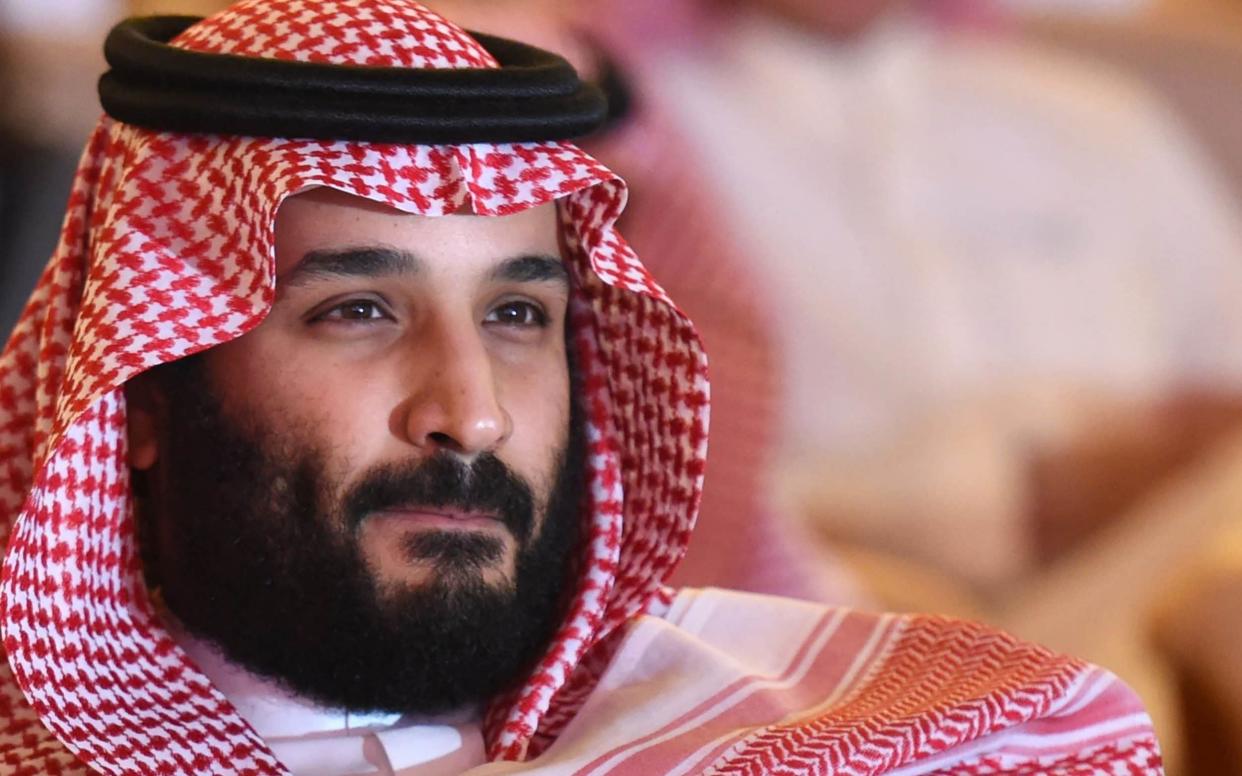Saudi women do not need to wear black abayas, Mohammed bin Salman says ahead of trip to US

Women in Saudi Arabia do not need to wear traditional black abayas or headscarves, Crown Prince Mohammed bin Salman has said, as he tries to burnish his reformist credentials ahead of his first trip to Washington as Saudi heir to the throne.
The 32-year-old prince, who will meet Donald Trump at the White House on Tuesday, said that Saudis had “come a very long way and have a short way to go” to roll back laws which have restricted Saudi women for decades.
"Saudi women still have not received their full rights. There are rights stipulated in Islam that they still don’t have,” he told CBS News.
“The laws are very clear and stipulated in the laws of sharia: that women wear decent, respectful clothing, like men,” the prince said. “This, however, does not particularly specify a black abaya or a black head cover. The decision is entirely left for women to decide what type of decent and respectful attire she chooses to wear.”
Black abayas, a loose fitting robe, are not mandatory for women in Saudi Arabia but they are so widely worn that they are strongly associated with the conservative kingdom. The prince’s comments will be taken as a sign of his ambitions to further ease Saudi Arabia’s social laws and customs.
“Saudi Arabia does not want to acquire any nuclear bomb, but without a doubt if Iran developed a nuclear bomb, we will follow suit as soon as possible.” Saudi Crown Prince Mohammed bin Salman @CBSThisMorning@60Minuteshttps://t.co/WZwnapOUxApic.twitter.com/yMsS0k1Q4W
— Norah O'Donnell���� (@NorahODonnell) March 15, 2018
Prince Mohammed has pushed through widespread domestic reforms since rising to power, including allowing women to drive from June, attend football games in stadiums, and join the Saudi military.
However, he has not rolled back the country’s male guardianship laws, which make it almost for women to travel, work, or get married without permission from a male relative. Human Rights Watch call the laws “the most significant impediment to women’s rights” in Saudi Arabia.
The meeting between Prince Mohammed and Mr Trump will be their first face to face encounter since the prince usurped his older cousin to become Saudi Arabia’s heir to the throne last June.
He is considered one of the most powerful men in the Middle East and may potentially rule Saudi Arabia for decades once he takes power from his frail 82-year-old father King Salman. “Only death” would stop his reformist mission, the prince said.

While Prince Mohammed is well-liked by the Trump administration, especially for his hawkish tone on Iran and promises to fight Islamist extremism, members of the US congress have voiced serious concerns about his policies ahead of the trip.
A group of Democrat and Republican senators are attempting to halt US support to Saudi Arabia in the war in Yemen, where Saudi-led coalition is bombing a rebel group aligned with Iran.
The war has killed 10,000 civilians and left millions on the brink of famine, with human rights groups blaming Saudi Arabia for much of the suffering. Both the US and UK supply Saudi Arabia with weapons and other support.
The prince said the situation in Yemen was “very painful” but blamed the rebels and Iran for the humanitarian catastrophe.

US senators are also speaking out about Prince Mohammed’s plans to build a nuclear power programmed Saudi Arabia. The prince said the programme is only for civilian purposes but several senators said they feared it could laying the foundation for nuclear weapons development.
“Saudi Arabia has failed to take basic steps that would signal its commitment to use nuclear energy solely for peaceful purposes,” said Edward Markey, a Democrat senator.
Prince Mohammed has said previously that Saudi Arabia would develop a nuclear bomb if its arch-rival Iran was allowed to get one. Analysts have warned that a nuclear arms race between Iran and Saudi Arabia would be a major source of instability in the Middle East.

 Yahoo News
Yahoo News 
